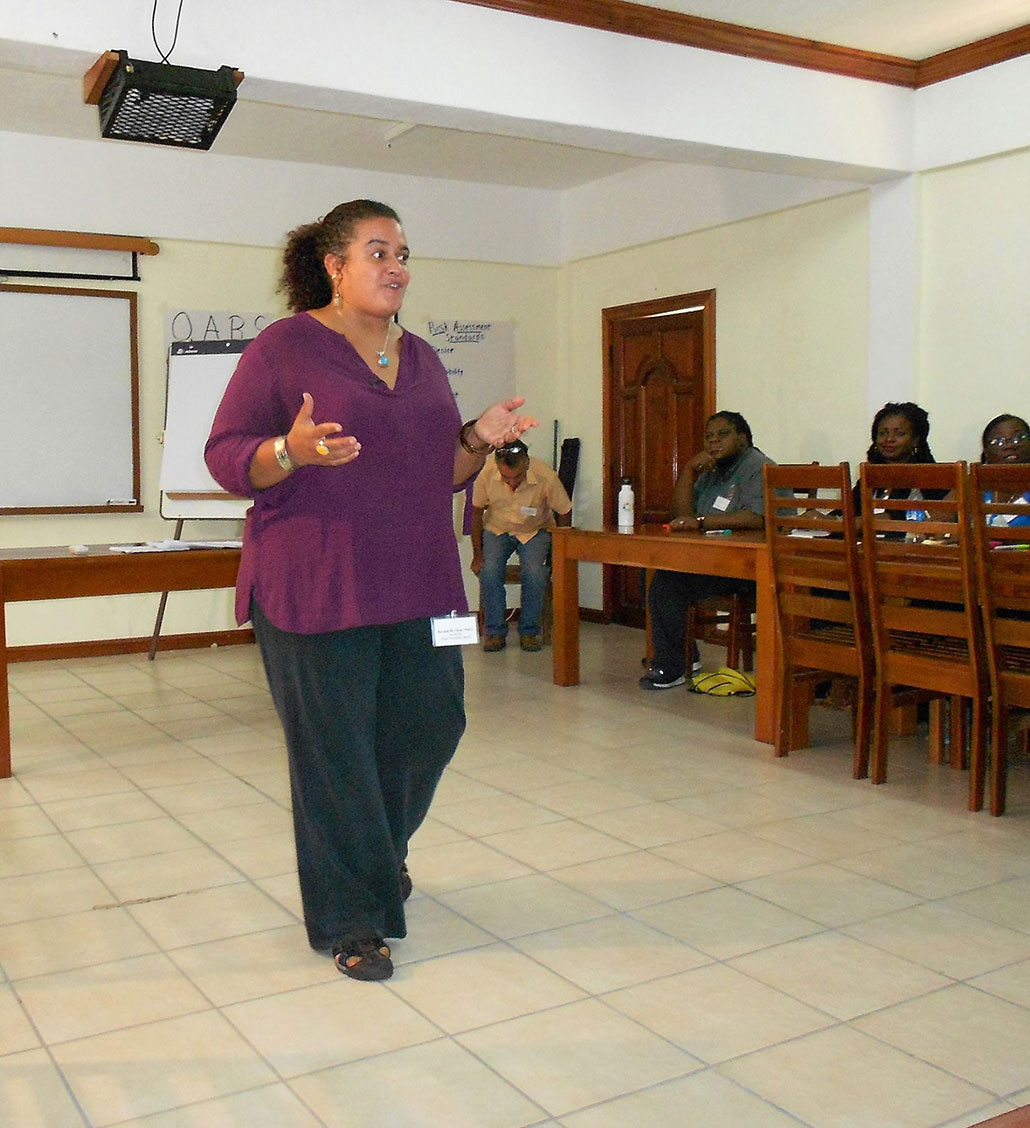Fifty-four persons from across the country have received training in Suicide Prevention through a partnership between the Youth Resilience and Inclusive Social Empowerment (RISE) Project, Galen University, and COBEC. The workshops were one of the first activities under the recently launched Youth Rise Project and took place in Cayo and Stann Creek between June 8th and 13th, 2017. Participants included persons who actively work with youths within community safety nets, such as counsellors from high schools in central and southern Belize and the University of Belize, counsellors and social workers from the Ministry of Human Development, Social Transformation and Poverty Alleviation, the Department of Youth Services, and the Community Policing Unit, as well as professionals from the ITVET.
The training sought to build on the skill set of the participants including how to assess and recognize possible suicide cases; how to respond and provide basic counselling to persons at-risk; and also looked at strengthening service networks to know when, how and to whom to refer. The workshops were co-facilitated by Dr. Guy Ilagan, Assistant Professor of Counsellor Education at The Citadel College in Charleston, South Carolina; Dr. Jill Ilagan, Clinical Psychologist and Adjunct Professor at The Citadel’s Psychology – Clinical Counselling Program; and Kendra Hoyt, Lecturer and Life Coach at Galen University.
The Youth Rise Project is implemented by the Government of Belize via the Ministry of Human Development, Social Transformation & Poverty Alleviation and public sector and social partners with funding from the Caribbean Development Bank and the Government of Belize. Youth Rise responds to the challenges facing vulnerable groups, particularly at-risk youth in the towns of San Ignacio/Santa Elena and Dangriga by supporting the expansion of and access to needed social programs for youths and their families, while developing and presenting new services to reduce social exclusion. The two suicide prevention workshops were carried out under the Enhancement of Therapeutic Responses component, which seeks to strengthen the delivery of care and support to families and children who have interfaced with the child protection system due to child abuse and neglect, in addition to building the capacity of service providers and substitute care providers.

















